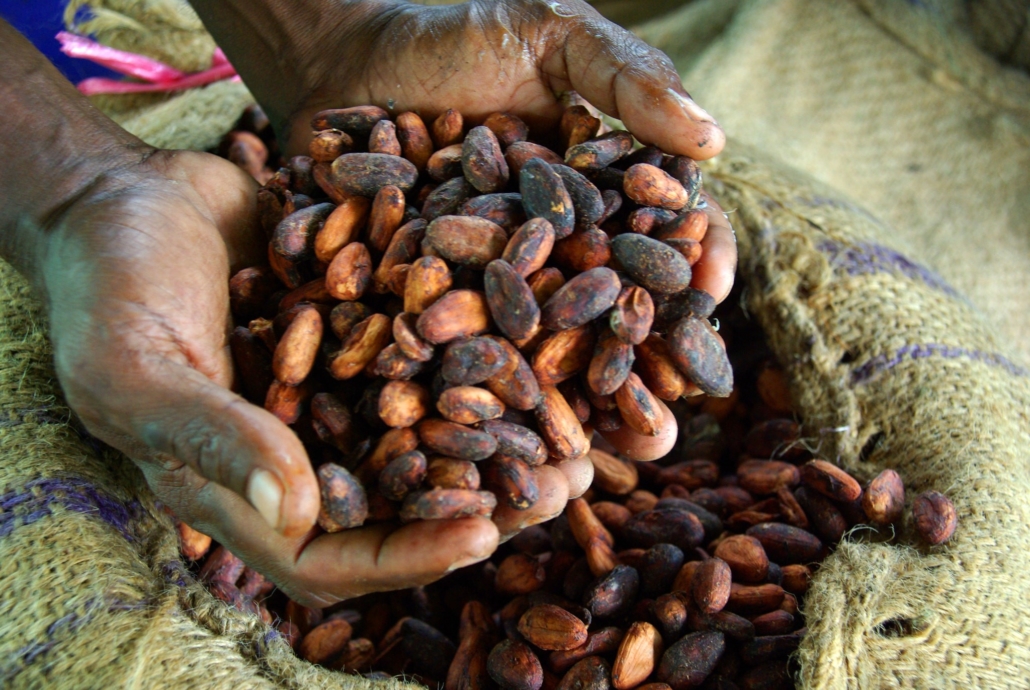Ben & Jerry’s Supports Cocoa Farmers in Africa

As the fourth largest export in the world, cocoa has made significant contributions to the global market ever since its introduction to Nigeria in 1984. Many big brand chocolate and ice cream companies such as Mars, Hershey’s and Snickers are dependent on this market, though much of the revenue does not go to cocoa farmers or workers. In 2014, chocolate sales reached up to $100 billion, yet cocoa farmers were living off a wage of $1.25 per day. However, there is hope as Ben & Jerry’s provides support to cocoa farmers in Africa.
Child Labor in Cocoa Farming
With rising demands for cocoa production and insufficient compensation, cocoa farmers in Africa are reluctant to discontinue the use of child labor. A study from the University of Chicago reported that about 1.6 million children work on cocoa farms, mostly found in Ghana and Ivory Coast (Côte d’Ivoire) — the two largest cocoa production sites. Ghana and Ivory Coast account for two-thirds of the world’s cocoa bean production and exploit impoverished children as young as 5 years old who need to support their families.
Despite the slowed rates of child labor in Africa’s cocoa production, farmers and working children struggle to maintain a sufficient income to support themselves. Cocoa trees take years to cultivate and harvest, which is too time-consuming for a volatile and unreliable market price. Nongovernmental organizations that strive to end child labor in Africa speculate that cocoa farmers’ insufficient incomes stem from supply chains. Although programs are in place to reduce child labor and help farmers in the supply chain achieve self-sufficiency, cocoa production does not yield enough to combat poverty among the farmers and workers in the industry.
Ben & Jerry’s and Fairtrade
On Nov. 17, 2020, the Ben & Jerry’s ice cream brand released a statement announcing its commitment to paying a livable wage to the cocoa farmers in Africa. In partnership with Fairtrade, Ben & Jerry’s plans to allocate funds toward Fairtrade’s premiums, which are supplemental bonuses that farmers receive for quality work. With extra funding, cocoa farmers have been able to build health facilities and install essential amenities, such as water pumps or solar panels.
Fairtrade also released its new mission statement to provide a livable income for its workers in the cocoa sector. By focusing on multidimensional poverty alleviation for cocoa workers, Fairtrade plans to allocate funds to implement assistant programs, make partnerships to push for sustainability and push for policies to protect small stakeholders in poverty. By collaborating with Ben & Jerry’s, both brands guarantee financial support to the 168,000 cocoa farmers abiding by environmentally friendly structures and producing quality ingredients.
Looking Forward
Ben & Jerry’s continues to promote Fairtrade and push for liveable wages in Ivory Coast and Ghana’s cocoa bean plantations. In its recent statement, it announced, “As part of our new price commitment for the cocoa we will work with Fairtrade to evaluate and [ensure] we are making a positive difference for farmers.” By marking its Fairtrade partnership on cocoa-based ice creams, Ben & Jerry’s chocolate fudge brownie flavored ice cream will now be a reminder that consumers are supporting businesses in Africa.
– Linda Chong
Photo: Flickr
